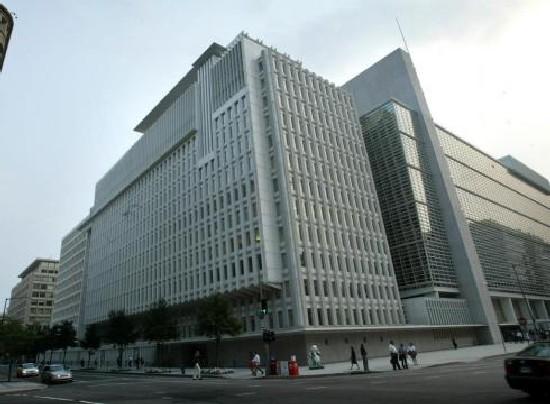You are here
Jordan, World Bank sign $250m loan agreement
Apr 10,2014 - Last updated at Apr 10,2014
AMMAN — Jordan and the World Bank Group (WBG) have concluded a $250 million loan agreement aimed to help alleviate the Kingdom’s fiscal strains and enhance its economic growth.
The Development Policy Loan (DPL) deal was signed by Minister of Planning and International Cooperation Ibrahim Saif and World Bank MENA Region Vice President Inger Anderson during the 2014 Spring Meetings of the WBG and International Monetary Fund being held in Washington.
According to a Ministry of Planning and International Cooperation statement to The Jordan Times, the DPL, which was approved by the WBG executive board on March 13, is of a 30-year maturity period with a grace period of five years and a low interest rate below 1 per cent.
In a press release posted on its website last week, the World Bank said that the loan is meant primarily to help ease Kingdom’s fiscal strains which have been deepened by the influx of Syrian refugees.
The WBG also blamed regional turmoil for Jordan’s financial woes, highlighting disruptions of natural gas supplies from Egypt.
The World Bank’s support to Jordan over the last two years, amounting to $700 million in loans and grants, has focused on a two-track approach: medium-term budget support and an emergency response to the Syrian crisis, the statement said.
“Jordan is striving to offset the impact of exogenous shocks that have deepened its economic difficulties,” said Ferid Belhaj, World Bank director of the Mashreq (Levant) Department.
“The WBG’s support to Jordan over the last several months is a case in point of how engaging fast and in earnest to tackle emergency situations, such as the impact of the Syrian crisis on the country, can help maintain government focus on policy dialogue and prevent the derailing of its broad structural reform agenda,” Belhaj added.
The Second Programmatic Development Policy Loan complements an earlier operation approved in January 2012 which supports key elements of the government’s Executive Development Programme, which aims to improve transparency and accountability, enhance debt management and the efficiency of government spending, and promote private sector-driven growth, the bank’s statement said.
More recently, in July 2013, the WBG committed $150 million through rapid, direct financial assistance to help Jordan maintain access to essential healthcare services and basic household needs for the population affected by the large and increasing impact of the Syrian crisis.
The World Bank said that it had also spearheaded efforts to mobilise donor grant financing to support the resilience of stretched public service delivery to Jordanian communities hosting Syrian refugees, pointing out that in October 2013, the bank secured a $50 million grant targeting municipalities and communities under stress.
The grant, co-financed by Britain, Canada, Switzerland and the World Bank through its State and Peace Building Fund, strengthens municipal capacity to support local economic development.
External shocks, the global recession and the regional turmoil that followed the Arab Spring, including the impact of the disruption in low-cost gas supplies from Egypt, have heightened long-term structural vulnerabilities in Jordan, according to the bank.
“As of mid-2012, it became apparent that the external shocks and regional turmoil have resulted in fiscal and current account imbalances which have been partially financed by external aid,” said Eric Le Borgne, World Bank lead economist for Jordan, as quoted by the statement.
Related Articles
The World Bank on Thursday approved a $250 million loan to Jordan to help ease the Kingdom’s fiscal strains, which according to the bank have been deepened by the influx of Syrian refugees.
The World Bank on Thursday approved a $250 million loan to Jordan to help ease the Kingdom’s fiscal strains, which according to the bank have been deepened by the influx of Syrian refugees.
AMMAN — The World Bank board of directors approved Friday a $250 million financial package to support Jordan’s process to reform the energy

















